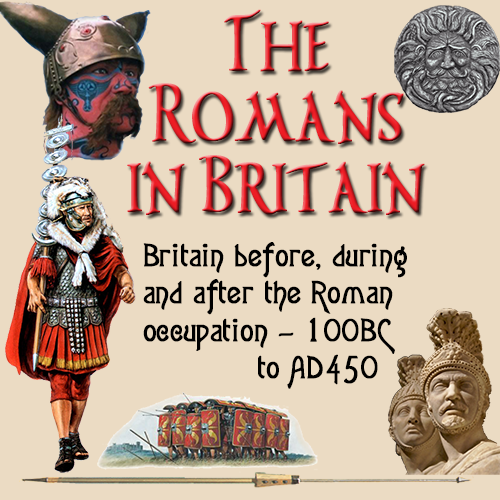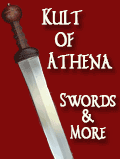Falkirk Museums
About The Falkirk Museums
Within Falkirk District, along the route of the Antonine Wall, many interesting finds have been uncovered. Roman shoes, fragments of pottery, an iron axehead and an iron javelin are among the items on display in Kinneil Museum. A bronze strap fitting, possibly worn by one of the soldiers, is one of the most interesting items. At Bridgeness, in 1868, a stone 'distance slab' was found, and was subsequently presented to the National Museum of Antiquities in Edinburgh. A replica of the slab's inscription can been seen in Harbour Road, Bo'ness. Falkirk Museum Service hold an extensive collection of other finds, including pottery, jewellery and weaponry, and it is planned to display some of these items at a future date.
Kenniel Estate - Bo'ness
 In 1978, excavations at Kinneil Estate uncovered a small Roman fortlet, which would have been attached to the rear of the Antonine Wall. Essentially the fortlet, was a rectangular area, enclosed by a turf and earth rampart, protected by an outer ditch A gravel road ran from south to north through the fortlet, with gateways at either end, the positions of which are now marked by timber posts. Timber posts also mark the positions of original Roman buildings, which were found within the fortlet during a 1981 excavation . Several interesting finds are on show in nearby Kinneil Museum
In 1978, excavations at Kinneil Estate uncovered a small Roman fortlet, which would have been attached to the rear of the Antonine Wall. Essentially the fortlet, was a rectangular area, enclosed by a turf and earth rampart, protected by an outer ditch A gravel road ran from south to north through the fortlet, with gateways at either end, the positions of which are now marked by timber posts. Timber posts also mark the positions of original Roman buildings, which were found within the fortlet during a 1981 excavation . Several interesting finds are on show in nearby Kinneil Museum
Polmonthill - Nr. Grangemouth
From Kinneil, the Antonmc Wall ran westwards on the crest of the high ground A small part of the ditch can still be seen parallel to and on the north side of Polmonthill ski slope although it is far shallower than it was originally.
Callendar Park - Falkirk

Watling Lodge — Tamfourhill, west of Falkirk >>>>
The ditch of the Antomne Wall can be seen in the grounds of Callendar Park. It runs westwards from the business park for about half a mile, and is still 6-10 feet deep. The wall itself survives for part of this length, as a low mound, set back from the southern edge of the ditch between two lines of trees.
Here to the south of the Forth and Clyde Canal the best surviving stretch of the Antoninc Wall, which gives the clearest impression of the formidable nature of the ditch . It is still about 40 feet wide and 15 feet deep. The remains of the turf rampart can be seen as a low mound set back some 20 feet from the south lip of the ditch. As can be appreciated today the siting of the Wall at this position gave an unobstructed view of the countryside ro the north
Rough Castle - Nr. Bonnybridge
 This is the best preserved of all the forts on the Antoninc Wall. Built against the back of the wall, this fort was defended by turf ramparts, 20 feet thick on a stone base. Double ditches ran round the other three sides. Clearly visible to the left and right of the visitors car park, the ditch and rampart of the wall are particularly well preserved. In places the Antonine Wall still stands some 5 feet high.. The fort itself lies to the east, and would probably have provided barrack accommodation for about 500 men. The rampart and ditches can be followed round the fort, and the overgrown and fragmentary ruins of some of the more important buildings can still be seen Over the causeway across the Antonine ditch, lies a series of pits, called 'lilia' these originally had a pointed stake at the bottom of each, and would have been concealed by branches to serve as a brutal trap for anyone attacking the fort.
This is the best preserved of all the forts on the Antoninc Wall. Built against the back of the wall, this fort was defended by turf ramparts, 20 feet thick on a stone base. Double ditches ran round the other three sides. Clearly visible to the left and right of the visitors car park, the ditch and rampart of the wall are particularly well preserved. In places the Antonine Wall still stands some 5 feet high.. The fort itself lies to the east, and would probably have provided barrack accommodation for about 500 men. The rampart and ditches can be followed round the fort, and the overgrown and fragmentary ruins of some of the more important buildings can still be seen Over the causeway across the Antonine ditch, lies a series of pits, called 'lilia' these originally had a pointed stake at the bottom of each, and would have been concealed by branches to serve as a brutal trap for anyone attacking the fort.
Seabegs Wood — Nr. Bonnybridge
 The line of the Antoninc ditch and Wall can be clearly seen running for quarter of a mile through Scabegs Wood, to the south of the Forth and Clyde Canal. At this point the ditch is still some 40 feet wide, but only 6-8 feet deep In places, the rampart survives to a height of 4 feet. A number of other, less well preserved sites exist within Falkirk District, where interpretive display panels describe each location for visitors. These are at Kemper Avenue, Anson Avenue and Tamfourhill Road, in Falkirk, Underwood Lock (Allandale) and Castlecary
The line of the Antoninc ditch and Wall can be clearly seen running for quarter of a mile through Scabegs Wood, to the south of the Forth and Clyde Canal. At this point the ditch is still some 40 feet wide, but only 6-8 feet deep In places, the rampart survives to a height of 4 feet. A number of other, less well preserved sites exist within Falkirk District, where interpretive display panels describe each location for visitors. These are at Kemper Avenue, Anson Avenue and Tamfourhill Road, in Falkirk, Underwood Lock (Allandale) and Castlecary
Useful information
- Free parking provided
- Picnic area provided
- Wheelchair access
- Gift shop in museum
- Visitors Centre
- Dogs allowed
- Coach parties welcome
Contact:
- Falkirk Museums
Callendar House
Callendar Park
Falkirk
FK1 1YR
- Tel: 01324 506850
- Website : https://www.falkirkleisureandculture.org/learning/museums/





















